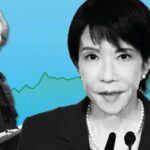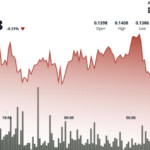Americans are experiencing unprecedented levels of stock ownership, with data from the Federal Reserve Bank of St. Louis revealing that direct and indirect stock holdings comprised 45% of American households’ financial assets in the second quarter. This surge in stock investments is attributed to several factors, including soaring stock prices over recent months and the growing popularity of retirement plans that involve stock market investments, such as 401(k) plans.
While this increased participation in the stock market has generally positive implications, allowing more individuals to benefit from corporate gains, experts are beginning to caution about the risks associated with such high levels of stock investment. LPL Financial’s Chief Economist Jeffrey Roach notes that a significant portion of household wealth is now tied up in stocks, creating a scenario where the stock market can exert a formidable influence over the broader economy. Roach remarked that economic fluctuations related to stock market performance—either a rapid increase (melt-up) or a steep decline (meltdown)—will have a more pronounced impact than in previous years.
Additionally, Rob Anderson, a U.S. Sector Strategist at Ned Davis Research, cautioned that historical trends indicate a correlation between record stock ownership and an increased likelihood of market downturns. He advises investors to temper their expectations for future market returns, predicting a possible downshift in returns over the next decade compared to the previous period of exceptional growth.
The implications of this heightened stock market engagement extend beyond the individual investor, as it can distort economic indicators, often presenting an overly optimistic view of current economic conditions. Kevin Gordon, a senior investment strategist at Charles Schwab, highlighted that while market gains can encourage consumer spending, a reversal of those gains could swiftly dampen spending patterns. He emphasized that with so many households exposed to the stock market, a prolonged market downturn poses a substantial risk, potentially undermining household spending and altering the economic psychology, especially among wealthier individuals.
As this situation unfolds, investors and economists alike are grappling with the ramifications of an economy increasingly reliant on stock market performance, navigating both its opportunities and inherent risks.







